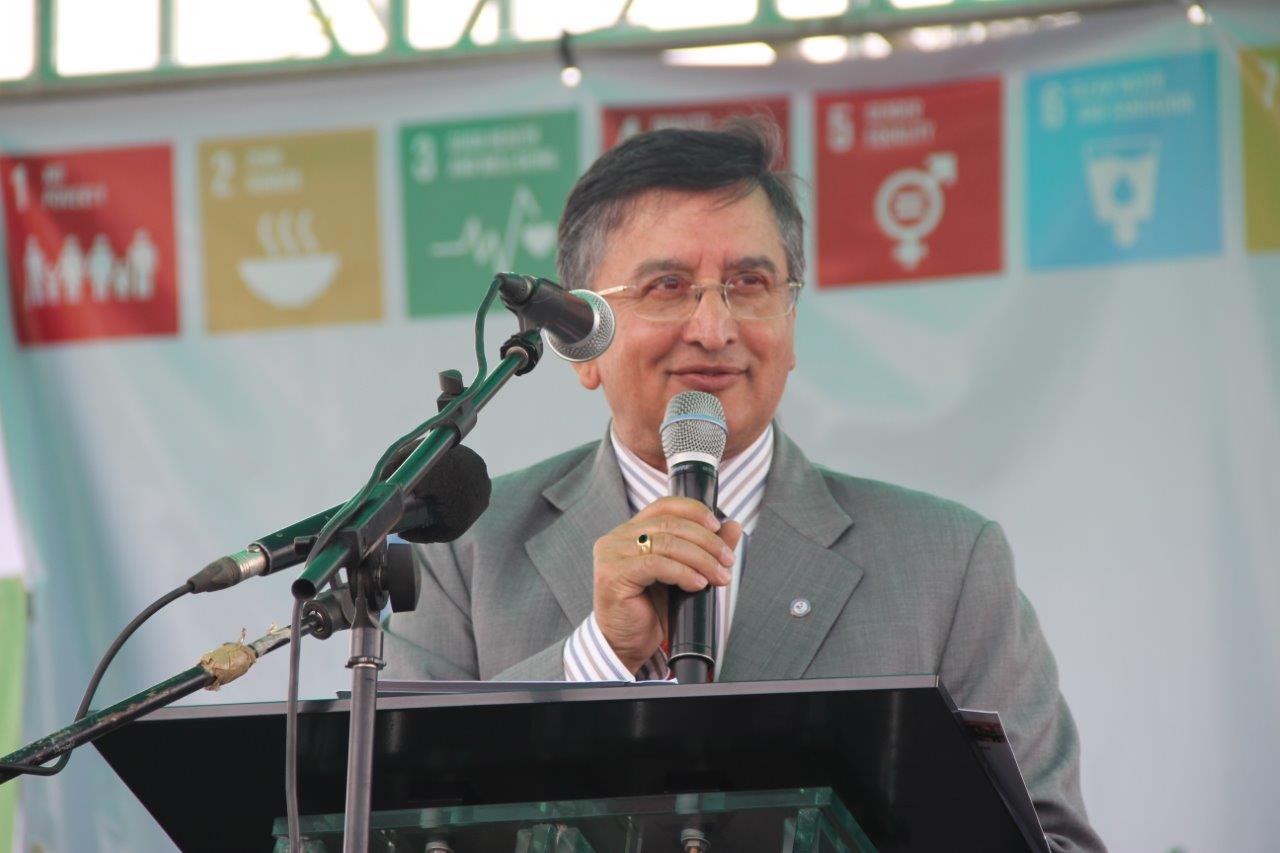By Byron Mutingwende
A strong media provides accurate, timely and objective reporting to foster development and encourage humanitarian work for sustainability, the United Nations has noted.
Speaking during a workshop on experience sharing on forging alliances between the media and the world body in a quest to advance the achievement of the Agenda 2030 for Sustainable Development, Bishow Parajuli, the UN Resident Coordinator for Zimbabwe said journalists were at the centre of promoting the common interest of improving the wellbeing of the people.
“The people who are affected by development programme ought to have their voice heard, ought to be consulted, have ownership in whatever is being designed for them to ensure success.
“A good starting point is to empower people with information particularly in the rural areas: information that highlights innovation, information that will help the public monitor and evaluate national development programmes and policies; information that enables us to determine whether public pronouncements are translated into public actions, information that provides us with a sense of cause and effect, information that makes it possible for the public to participate meaningfully in discussions and debates on development issues,” Parajuli said.
He added that the media follow up stories to ensure that the public pronouncements of public officials are translated into public actions.
Anderson Chiraya, the Director of Monitoring and Evaluation in the Office of the President and Cabinet urged the media to report on the Zimbabwe Agenda for Sustainbale Socio-Economic Transformnation (ZimAsset) which emphasises on development, job creation, poverty eradication, equity, and attainment of a balance in economic transformation across the various sectors and regions of the country.
Chiraya bemoaned the fact that business activity had decelerated since 2015, on the back of emerging vulnerabilities and lingering challenges that had a dampening effect on the economic recovery momentum.
“In this regard, real GDP growth has since decelerated. As developments since the beginning of 2015 indicate the economy is experiencing severe liquidity stress. There is also an ncrease in the number of company closures and scaling down of operations, particularly in the manufacturing industries, accompanied by significant job losses in all sectors,” he said.
That was been accompanied by growing discord in labour markets especially with regards to the enforcement of labour laws that require reforms and harmonisation to improve the labour relations environment and stimulate more job creation and retention. Imports declined by over 35% and a general serving of 1 billion was realised because of SI 64 in 2016.
In the social services and protection area, the United Nations launched and started implementation a multi-million health development fund which aims to strengthen health systems, address child and maternal health. The UN support also contributed to increased enrolment by 24% of children with disabilities in primary and secondary education (from 40,226 to 49,692). Facilitated the launch of National Social Security Strategy and maintained cash transfer to over 55,000 vulnerable households. To enhance hygiene and sanitation over 58,000 household latrines have been constructed.
Elizabeth Mupfumira, the UNICEF Communication Specialist said that vulnerable households have limited access to and utilisation of basic social services, such as health, education, water and sanitation.
“This leads to a number of other problems, including school dropouts, child labour, and teenage pregnancies. Access to and utilisation of services has been limited by a number of factors including; poverty, inadequate financing of the social sector, insufficient implementation, monitoring and evaluation of policies and programmes, lack of adequate infrastructure, negative social norms,” Mupfumira said.
In response to the severe drought that hit the country in 2016, the focus in the areas of food and nutrition security was redirected to live saving assistance which supported two million people with food assistance; close to 140,000 vulnerable people were also supported with rehabilitation and community asset building programmes.
On HIV and AIDS, the United Nations provided and sustained anti-retroviral therapy to nearly one million people living with the virus enabling them to lead healthy and productive lives. Our prevention efforts through male circumcision; awareness raising; and voluntary counselling and testing has stopped the epidemic on its tracks and reversing the trend downwards.
On gender equality, the UN has provided support to national advocacy outlawing child marriages and the development of the National Action Plan on Ending Child marriages to ensure girls stay in school and take charge of their own economic empowerment. The UN has been supporting the strengthening of the capacity of women parliamentarians and women representation in parliament and other governance structures. On mainstreaming gender equality into the national financial inclusion strategy, the UN has been supporting the establishment of eight women banks.
In the areas of public administration and good governance, the UN facilitated an extensive multi-stakeholder’s consultation engagement during the second Universal Periodic Review process in which Zimbabwe has accepted 142 recommendations for implementation. The United Nations continued its support to alignment of laws to the constitution, capacity building on treaty bodies and to independent institutions such as human rights, gender, election, peace and reconciliation, media and commissions.
On poverty reduction and value addition, the UN provided technical support in the formulation of the Interim Poverty Reduction Strategy for 2016-2018, the review of the National Labour Migration Policy and the launch of the diaspora policy to engage Zimbabweans who live abroad in their national development. The UN also launched multi-year and multi-donor resilience fund which, in 2016, supported over 86,000 households in vulnerable districts in the country aiming at income generating opportunities (both on and off farm), markets and value chains, services delivery and community-based natural resources management.
In addition to implementing development programmes, the United Nations was at the forefront of responding to the drought through Humanitarian Response Plan (HRP), covering April 2016-March2017, reached nearly two million vulnerable people (65% of the overall HRP target) with USD 215 million. To address the flood disaster the UN has also been coordinating response to the Government appeal.
